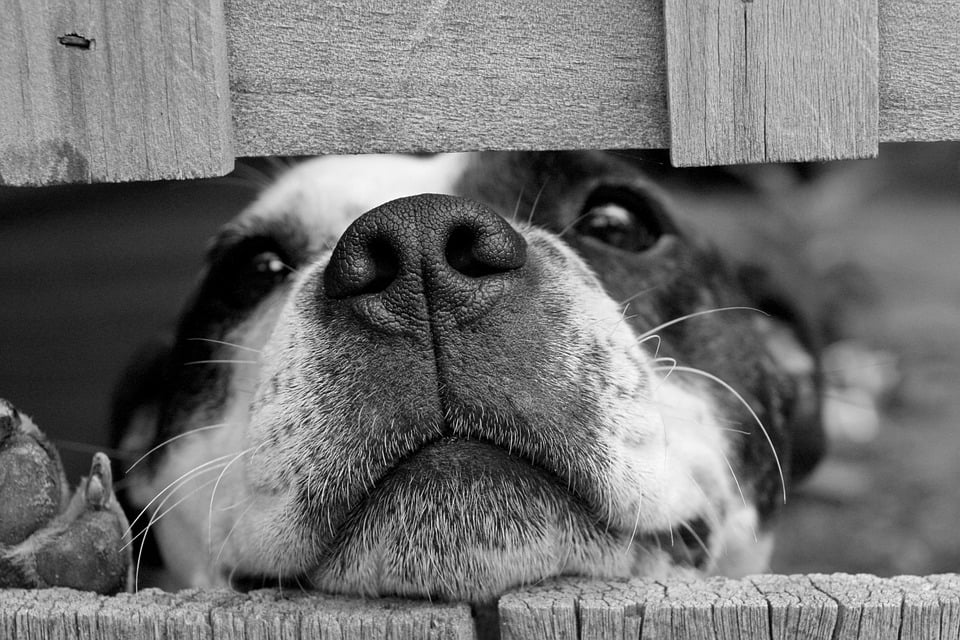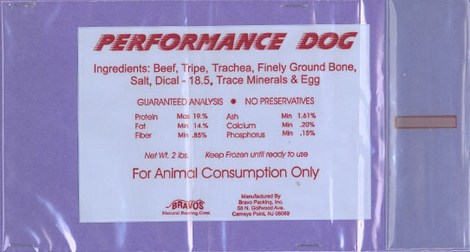January 2018
In early January of 2018, we learned that industry hired a representative who submitted a proposal to AAFCO hoping to weaken the legal requirements of a human grade pet food. No decision has been made by AAFCO at year’s end.
January also gave us some misleading marketing published by Purina; highlighting the serious need for pet owners to have public access to pet food ingredient definitions.
Recalls in January 2018:
Just Food for Dogs cooked dog food – Listeria monocytogenes. This was a pet food recall that led to a human food recall (first in history) – the pet food caught the problem, human food did not.
February 2018
February 2018 brought news of more pentobarbital in pet food. Washington DC television station WJLA News tested 62 samples of dog food. “After months of tests and re-tests, one brand repeatedly came back positive for pentobarbital. In total, we tested 15 cans of Gravy Train. Nine cans — 60-percent of the sample — were positive for pentobarbital.” And following the news of pentobarbital in Gravy Train, a class action lawsuit was filed against manufacturer Big Heart Brands/J.M. Smucker.
In February, TruthaboutPetFood.com provided a comparison to FDA’s handling of a kibble recall to a raw recall proving absolute bias by the agency.
General Mills purchased Blue Buffalo pet food in February 2018 for an estimated 8 Billion dollars.
We provided an in-depth look into the ‘Complete and Balanced’ pet food regulations – proving existing regulations could cause nutrient deficiency in pets.
Recalls in February 2018:
Raws for Paws raw pet food – Salmonella.
Smokehouse Pet Products, Inc. “Beefy Munchies” – Salmonella.
Redbarn Pet Products, LLC Bully Stick three pack – Salmonella.
Darwin’s Pet Food raw pet food – Salmonella.
Smokehouse Pet Products expanding recall Beefy Munchies/Beefy Bites – Salmonella.
TruPet, LLC topper – Salmonella.
Northwest Naturals raw pet food – Listeria monocytogenes.
Carnivore Meat Company raw pet food – Salmonella.
March 2018
In March of 2018, a pet owner who lives across the street from a rendering facility provided us with horrific pictures of what FDA considers pet ‘food’.
The State of Ohio stepped up in a big way in March of 2018 – with Representative Laura Lanese submitting a bill requiring pet food to be free from any euthanized animal including dogs and cats used as a pet food ingredient. Ohio is the first state to do this!
We learned from a concerned veterinarian that FDA does little to require pet foods to update labels after any ingredient change is made in that pet food. FDA told this veterinarian that pet food “firms should update labels as soon as practical. The FDA does not provide a set timeframe.”
In March of 2018, TruthaboutPetFood.com explained the ‘False Friends’ of pet food labels(misleading information on pet food labels and websites due to pet owners having no public access to pet food ingredient definitions). Also, TruthaboutPetFood.com explained how FDA ignores the risk of dead bacteria on pet food ingredients (ignores the certain risk of endotoxins).
March 2018 brought a class action lawsuit against Champion Pet Food for “False Advertising”, violations of “feed law”, and numerous other charges. And we learned of more jerky treats imported from China killing beloved pets. And we learned of pet deaths in Australia linked to a Mars Petcare pet food.
In March of 2018 we learned some good (great) news too. Dr. Karen Becker and Rodney Habib published the ground-breaking documentary The Dog Cancer Series. Here is a clip from the film:
Recalls in March 2018
Blue Ridge Beef raw pet food – Salmonella and Listeria monocytogenes.
Steve’s Real Food raw pet food – Salmonella.
The FDA has informed J.M. Smucker that the firm’s previous action to withdraw products from the marketplace is now reclassified as a recall. Pentobarbital.
Raw Basics, LLC. raw pet food – Salmonella.
Redbarn Pet Products, LLC treats is expanding their voluntarily recall initially issued on February 9th.
Radagast Pet Food, Inc. raw pet food – Listeria monocytogenes.
The J.M. Smucker Company dog treats – elevated levels of beef thyroid hormone.
Darwin’s Natural Pet Products raw pet food – Salmonella and E. coli O128.
Blue Ridge Beef raw pet food – Salmonella and Listeria monocytogenes.
April 2018A
In April of 2018 we learned just how deadly grains in pet food could be. A survey of mycotoxin risks of grain ingredients in North America found 80% of grain samples tested contained two dangerous mycotoxins.
FDA issued a Warning Letter to Darwin’s Pet Food that proved the agency enforces with a double standard – raw pet food is held to food law, all other styles of pet food are held to inferior ‘feed’ laws.
We provided an in-depth look into the ‘system’ of influence of pet food regulation.
In April of 2018, J.M. Smucker purchases Ainworth (Rachel Ray Nutrish) pet food. China complained that Honest Kitchen’s ‘No Chinese Ingredients’ marketing was offensive. And we learned that Wild Earth has plans to make
“lab-created proteins” pet food
Recalls in April 2018
K9 Natural Ltd raw pet food – Listeria Monocytogenes.
Vital Essentials raw pet food – Salmonella.
TruPet, LLC Topper – Salmonella.
OC Raw Dog, LLC raw pet food – Listeria monocytogenes.
OC Raw Dog, LLC treat – fish have exceeded the FDA compliance guideline for fish larger than 5 inches.
May 2018
May of 2018 Amazon introduced their own pet food line. But – Amazon could not provide answers to basic questions of their new products. Also in May, we learned that industry events are talking about us…
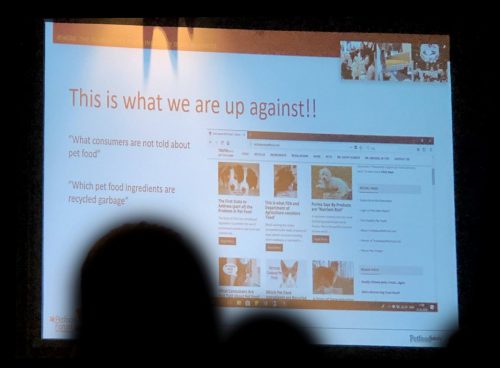
May 2018 introduced us to Maria – a pet owner in Australia that stands on street corners day after day trying to educate fellow pet owners to the conditions of pet food.
We also learned that Wilbur-Ellis – a pet feed ingredient supplier pleaded guilty to “substituting lower-cost ingredients for premium, more expensive chicken and turkey meal”.
Recalls in May 2018
Merrick Pet Care treat – elevated levels of a naturally-occurring beef thyroid hormone.
June 2018
In June of 2018 – we detailed…
 13 billion pounds cattle material, an equal 13 billion pounds of illegal poultry material and another 13 billion pounds of illegal pig material is also allowed to be processed into pet feed/animal feed for a grand illegal total of 40 billion pounds a year.
13 billion pounds cattle material, an equal 13 billion pounds of illegal poultry material and another 13 billion pounds of illegal pig material is also allowed to be processed into pet feed/animal feed for a grand illegal total of 40 billion pounds a year.We explained the term in pet food “with” chicken or beef.
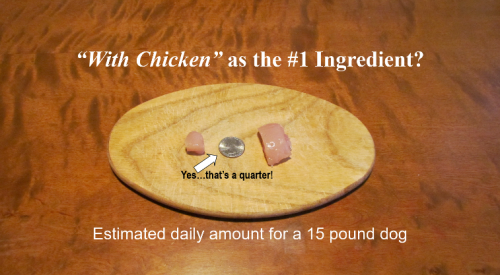 Recalls in June 2018
Recalls in June 2018Dave’s Pet Food can dog food – elevated levels of beef thyroid hormone.
July 2018
In July we explained the two most important words regarding pet food ingredients: “and passed“.
FDA released a “consumer alert” regarding the potential link to Grain-free pet foods and canine heart disease.
We emphasized the concerning issue that pet owners have no public access to pet food ingredient definitions and regulations.
We learned that FDA came into a pet food store in Pennsylvania and took pet food for testing from the store without paying for that pet food.
In July of 2018 we also learned that Purina has been “in talks” to purchase Champion Pet Food. The lawsuit against Champion Pet Food will continue per judge’s decision, and another lawsuit filed against Champion was filed – this time for cat food.
And in July of 2018 we learned that a Mars Petcare plant was infested with “millions of roaches” – but FDA took no regulatory action.
Recalls in July 2018
Radagast Pet Food, Inc. raw pet food – Listeria monocytogenes and E. coli O121.
August 2018
In August 2018 we compared the ingredients of brands of pet food from past to present. We exposed the significant conflict of interest of law making abilities of three public universities (in Kentucky, Indiana and Texas) that receive donations from Big Pet Food.
Also in August we saw a class action lawsuit filed against Solid Gold pet food claiming “fraudulent and negligent misrepresentation”. And another lawsuit against Rachel Ray Nutrish pet food claiming “deceptive advertising”. And one more lawsuit filed in August 2018 against Taste of the Wild pet food for “negligent misrepresentation, false advertising, and breach of warranty.”
And in August of 2018 the FDA provided an update to their Grain-free pet food investigation into the link to canine heart disease.
Recalls in August 2018
G & C Raw raw pet food – Listeria monocytogenes.
Radagast Pet Food raw pet food – Listeria monocytogenes and E. coli O121.
September 2018
September was full of bad news for pet owners. We learned that a licensed “dead animal hauler“ (that picks up euthanized animals) is also a pet food manufacturer.
We learned that millions of drown livestock animals from Hurricane Florence were welcomed as pet food ingredients.
We learned that FDA told an industry audience pentobarbital in pet food is more of a problem than they realized; “new evidence suggests that the problem may be more pervasive than originally thought.” In a later update to pet owners about the risk of pentobarbital in pet food, FDA said they just don’t have the money to enforce law; “Due to competing priorities and resource limitations, government agencies cannot act against every violation of the law.”
In September of 2018 we learned that FDA is ONLY working with Big Pet Feed to aid in the investigation of Grain-Free pet food link to canine heart disease. This website sent multiple requests to FDA on how pet owners can help – all were ignored. Scientists aiding in the investigation continue to provide misleading information to pet owners claiming “Grains have not been linked to any health problems except in the very rare situation when a pet has an allergy to a specific grain.” They ignored the certain risk of mycotoxins.
Recalls in September 2018
Steve’s Real Food raw pet food – Salmonella and/or L. mono.
Bravo Packing, Inc. raw pet food – Salmonella.
October 2018
October 2018 brought devastating news to pet owners. The pet food safety laws that were written to prevent another deadly recall like the one in 2007 were simply erased from record by Congress. In November – listed below – we learned the name of the one Senator that destroyed pet food safety.
We learned that a raw pet food manufacturer was forced to close its doors due to multiple recalls. Those recalls were obtained by Ohio and Colorado Department of Agricultureignoring their own regulations on testing and obtaining pet food samples.
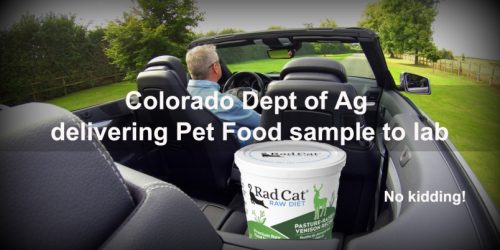
We learned that an ingredient supplier (Wilbur-Ellis – mentioned in May above) was fined more than $7 Million for knowingly selling adulterated pet food ingredients.
In October of 2018, we asked FDA for a public meeting with pet owners. FDA didn’t respond until December stating “Over the past few months, we have received several similar requests for meetings. We are currently considering how best to accommodate all the requests we have received. ” FDA promised to provide us information on our meeting “early in the New Year“.
And in October of 2018 we learned worldwide pet food sales have dropped $2.7 billion dollars in the last two years.

No recalls occurred in October 2018.
November 2018
Shocking news of November 2018 was the updated lawsuit against Champion Pet Food to include “risk of inclusion in their pet food of pentobarbital…” Champion Pet Food confirmed the pentobarbital concern. (More information on this in December.)
And in November of 2018 we learned that it was Senator Rand Paul of Kentucky that intentionally introduced an addendum to a bill that destroyed pet food safety.
Recalls in November 2018
Natural Life Pet Products dry dog food – elevated levels of Vitamin D.
Nutrisca dry dog food – elevated levels of vitamin D.
Sunshine Mills dry dog food – elevated levels of Vitamin D.
ANF, Inc. dry dog food – potentially elevated levels of Vitamin D.
ELM Pet Foods, Inc dry dog food – elevated levels of Vitamin D.
December 2018
In December we received a Freedom of Information Act request that appeared to show Champion Pet Food purchased their fat ingredient from the same supplier as Gravy Train Pet Food.
FDA sent out another consumer warning regarding the current problem of excess Vitamin D in pet foods.
And in December of this year a paper was published regarding the potential link of grain-free pet foods to canine heart disease.
Recall in December 2018
Columbia River Natural Pet Foods raw pet food – Listeria monocytogenes.
King Soopers dry dog food – elevated level of Vitamin D.
Kroger Louisville division dry dog food – elevated level of Vitamin D.
The J.M. Smucker Company wet, canned cat food – low levels of thiamine (Vitamin B1).JN
What a year it has been. Here’s hoping 2019 will bring improved (and consistent) enforcement of law in pet food. Here’s hoping for more good news in 2019 than bad.
My thanks to all that support TruthaboutPetFood.com each year – year after year. Happy New Year to all.
Wishing you and your pet(s) the best,
Susan Thixton
Pet Food Safety Advocate
Author Buyer Beware, Co-Author Dinner PAWsible
TruthaboutPetFood.com
Association for Truth in Pet Food










